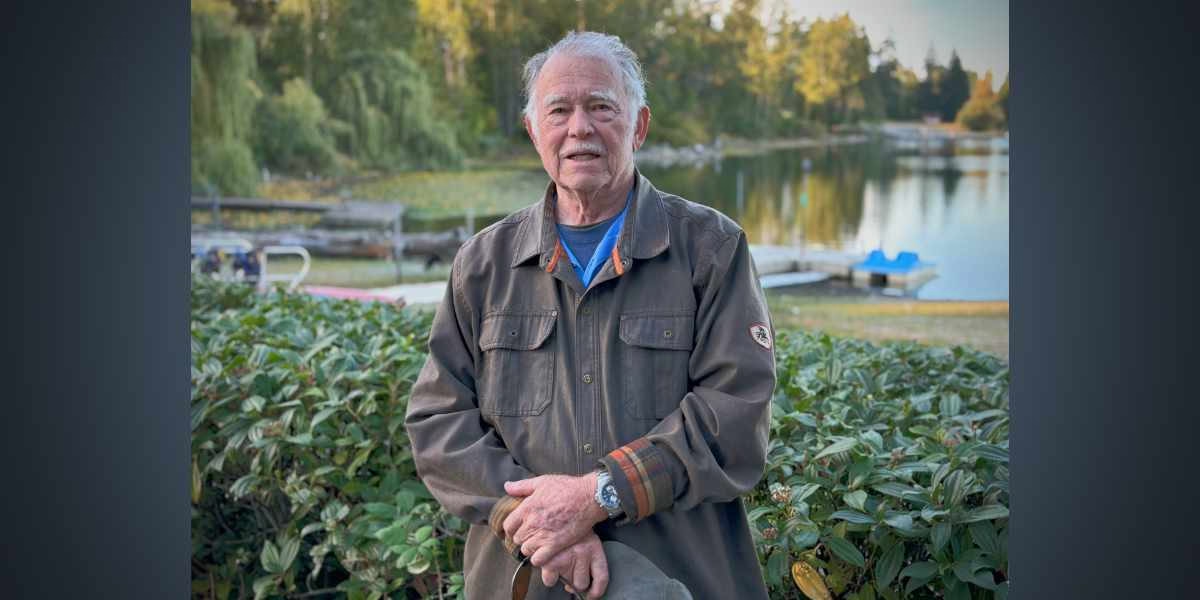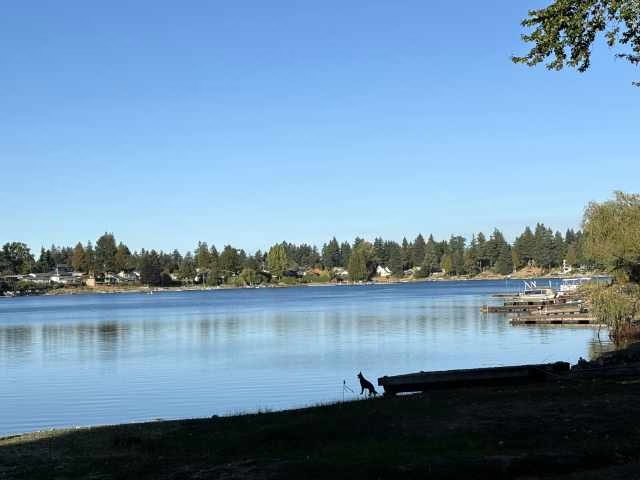Story & Photos by Alia Sinclair
William Westlake Walker, a former King County resident, celebrated his 80th birthday on Saturday, Sept. 20, 2025 on the shores of Angle Lake, where he made the incredible discovery of two Native American canoes 36 years before.
Friends and neighbors gathered at the Angle Lake RV Park on Saturday evening to hear how Walker, a retired architect and former resident, made the incredible discovery of two Native American canoes while diving in Angle Lake.
One April morning in 1989, Walker went for a dive in Angle Lake, as he had done over a hundred times before. On this particular morning, he noticed something different. Due to color blindness, Walker is unable to see certain colors but is extra sensitive to different hues of the same color. Because of this unique ability, he noticed a difference in the green shade of aquatic grass covering the floor of the lake. There was a patch of green unlike the surrounding areas – and it formed the perfect outline of what could only be a canoe.
Intrigued, Walker pushed his hand into the mud and was met with the smooth surface of a fire-hollowed canoe. What followed was a long process of excavation, restoration, and re-unification.
After securing the required permits from state authorities, Walker made 20 dives to dig the canoe out of the mud and float it above the mud line.
In the process, Walker made another remarkable discovery – about 350 feet from the site of the first vessel, a second canoe was found.
Using his knowledge of preserving artifacts from his architectural training, Walker began preserving the canoes by soaking them in a solution of polyethylene glycol. Because polyethylene glycol has a higher specific gravity than water, it forced the water out of the saturated canoes, allowing for a safe drying process to occur while also creating a wax-like surface that helped stabilize the deteriorating cellular structure of the wood.
Once the canoes were stable enough to work with, state archivists carbon dated the canoes to the year 1678. They were then held at The Washington State Archives Records Center for several years before being handed over to the Muckleshoot Tribe, where they remain in storage.
When asked if he was ever compensated for his efforts, Walker said:
“Let’s say I tried. But we did what we came to do to get it done.”
Read more about the discovery of the canoes here.




Recent Comments